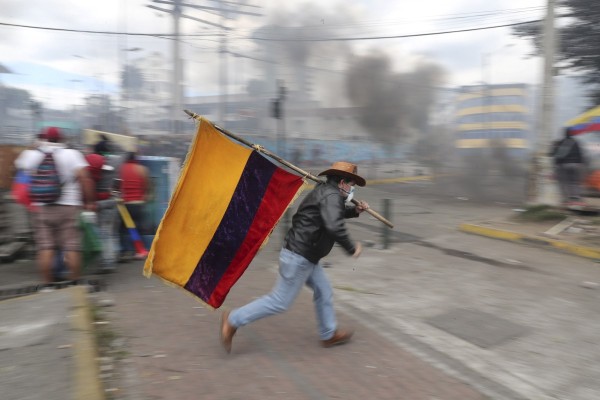-

Release of Tyre Nichols’ arrest video shows why police shouldn’t control body-cam footage
The practice of releasing body camera footage will continue to remain foremost in the interests of police especially when they continue to retain control over the footage. While body cameras will never solve the problem of police violence, it should not be up to the police to decide when and how footage is released as a legitimacy tool to leverage public support of police actions.
-

Police violence reached an all-time high last year—are we ready to shrink police budgets?
It’s not enough to call out police when they kill people. Police will continue to murder more people every year with impunity, their violence nurtured by powerful allies. If we want to see a significant reversal to the ruthless march of police savagery, we’re going to need to put our money where our mouths are: toward people’s needs, not police’s deadly deeds.
-

Police dogs pose a serious risk to schoolchildren
The public entrusts school administrators to safeguard their children. Ideally, the practice of allowing anyone—let alone susceptible children—to socialize with police K-9s in classrooms should end. Nevertheless, an investigation could lead to the development of necessary policies and safety precautions to ensure that no child in a classroom is ever bitten by a police dog.
-

Lula is creating a new police unit to curb environmental crimes in Brazil
The administration of leftist Brazilian President-elect Luiz Inácio Lula da Silva wants to establish a new Federal Police unit focused on deterring environmental crimes. While such offences are currently addressed by the Federal Police’s organized crime department, creating a new unit would show a sense of priority and a break from the previous government.
-

Police control of body camera footage undermines meaningful accountability
As police services continue to adopt and roll-out body-worn cameras, it is inevitable that the public will become more aware of police actions imprinted on the footage they record. What remains unclear is how the police can be held accountable by the use of body-worn cameras when the “official” narrative is manufactured and controlled by police themselves.
-

Yes, city councils can cut the police budget
Police possess unique and extreme powers, however the only reason they can deploy such powers is because governments consistently award them more and more funding. Despite the real mediating roles of police boards and provinces, city councils retain significant powers to reduce police budgets and reallocate resources to life-sustaining services.
-

Trudeau silent on police crackdown in Ecuador
While Ecuadorians rise up in protest of a mercilessly cruel economic system, the Trudeau government has stayed silent while the Canadian embassy degrades them as violent rioters. It should come as no surprise that the leader of a global mining superpower should react this way toward a protest movement demanding social and economic change within Latin America.
-

Rethinking police reform and abolition in the wake of Uvalde
When we focus the argument on police incompetence in an active shooter situation, we drag out the weighty implication that even the police force of a small city like Uvalde should be expected to perform what amounts to urban warfare at a moment’s notice. This is not a desirable outcome. Instead we need to see and present the bare fact that we cannot police ourselves out of discord and violence.
-

Body cameras do not fix the problem of police legitimacy
As of April 2021, approximately 900 Kansas City officers have worn body cameras at a cost of around $4 million a year. The expectation that outfitting police officers with body cameras was to somehow improve or restore police legitimacy is misguided at best, especially in the context of the long and storied history of outright police lies and dishonesty.
-

Canada’s unhoused crisis: Where government cruelty meets police repression
It is well past time to stop thinking of homelessness, drug addiction, and related domestic crises as outgrowths of individualized pathologies or mental illness—they are actually the result of what professor Anthony Zenkus calls “community illness,” which can also be described as the adverse mental health impact of the systemic violence engendered by Canada’s colonial-capitalist culture.



